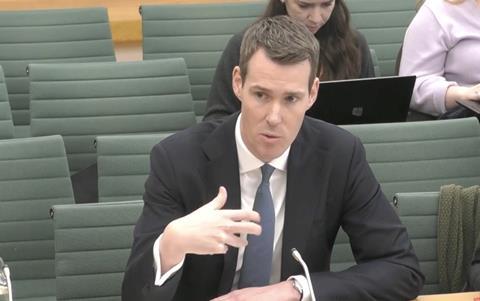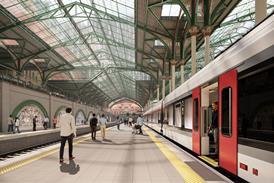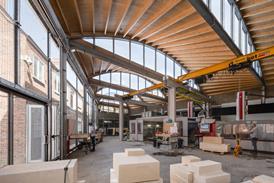Housing minster tells MPs he can’t provide a figure for the number of affordable or social rent homes to be delivered within the 1.5 million homes target
Matthew Pennycook has told a committee of MPs that he is convinced the government can deliver its 1.5 million new homes target over this parliament, calling it “essential”, due to the lack of affordable housing and 1.3 million people in the UK on social housing waiting lists.

In response to a question from the chair of the Housing, Communities, and Local Government committee, Florence Eshalomi MP, he acknowledged that both he and the deputy prime minister had always been “completely candid” about the challenge of meeting the target within a single parliament.
However, he said: ”On the 1.5 million new homes target, I am convinced it is deliverable, and I believe it is essential, more importantly”.
Eshalomi pointed out that since 2017, previous governments have only managed to deliver around 234,000 net additional homes per year. When pressed by Eshalomi about whether the government would set interim annual targets for housing delivery, the minister of state for housing and planning said they would not.
Pennycook explained: “You referenced 300,000 homes per year in your initial question, that was obviously the previous government’s target and it didn’t hit it once in 14 years.”
Pennycook admitted that “delivering 1.5 million homes is going to be more difficult than we expected in opposition”. He said Labour knew it would be grappling with a “difficult inheritance”, stating that the changes to the NPPF in December 2023 exacerbated a fall in housing supply.
However, he said that on assuming office, “we discovered that the situation was even more acute than we had expected”, referring to the Office for Budget Responsibility’s forecast that new supply will drop below 200,000 homes this year.
On interim housebuilding targets, he said this government “deliberately didn’t pick an annual target because we knew that we were going to inherit a very constrained supply, and in particular, what amounts to essentially a collapse in affordable housing supply”.
He added that “the trajectory is an upward one, with large amounts of housebuilding delivery in the later years of the parliament”. Pennycook nonetheless said he is “comfortable” that the government will reach the target by the end of its five-year term.
Eshalomi questioned “if you don’t have any interim targets, even something for the sector to respond to, how are we realistically going to measure progress or any slippage?”
The minister said that the number of planning permissions granted and additional new completions will be published as normal, stating “the sector will be able to see whether we’ve turned the system around and are making progress towards that final full parliament target”.
Liberal Democrat MP Lee Dillon asked Pennycook how many of the planned 1.5m homes will be for social rent. Pennycook said: “I can’t give you that figure, although we will have more clarity as we progress through parliament”.
He explained that it is “not as simple” as taking a proportion of the total supply and saying 20% or 25% of it will be social housing, noting that around half of all social and affordable housing is currently delivered through section 106 planning agreements with housebuilders.
He added that the government is committed to strengthening the existing developer contributions process and that pushing supply up through planning reform will help to deliver more affordable homes.
Regarding the provision of social and affordable housing through government funding, Pennycook said, “we won’t know until the spending review settlement precisely how many social and affordable homes will come through that route”.
While he refrained from providing a specific figure, Pennycook acknowledged that less than 10,000 social rented homes were delivered per year over the past 14 years, with the numbers typically around 6,000 to 7,000. He emphasised, “We need to do better than that”.
















1 Readers' comment